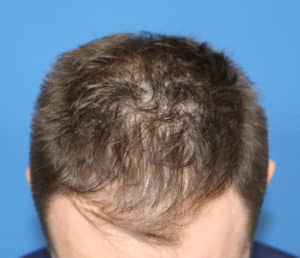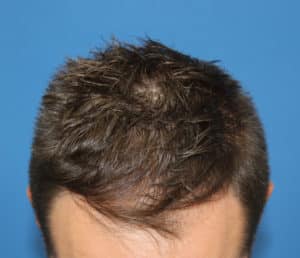What is PRP Hair Maintenance?
At Somenek + Pittman MD in Washington, D.C., Dr. Michael Somenek and Dr. Troy Pittman utilize advanced techniques, such as PRP (platelet-rich plasma) therapy, to stimulate dormant hair follicles and encourage natural hair regrowth. PRP is derived from your own blood, processed to isolate growth factors, and then injected into targeted areas of the scalp, specifically where thinning or loss has occurred. These growth factors help reinvigorate weakened follicles and extend the hair growth cycle, ultimately leading to denser, healthier hair over time.







